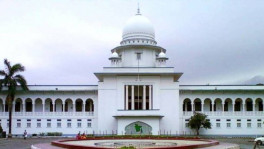Leather exporters fear grimmer days after incentive cuts
Most early business decisions were taken with incentives in mind

Highlights:
- Businesses say incentives were cut without consulting stakeholders
- Leather exports rely on competitive Chinese market
- Export to Europe not possible without an LWG certificate
- Exporters made business decisions considering incentives
Like many other sectors, the leather industry is feeling the squeeze from the government's recent decision to reduce incentives for exports to prepare for the country's graduation from Least Developed Country (LDC) status to middle income country in 2026.
Leather exporters said the industry was already troubled by limited export opportunities due to the lack of international certification for compliance and environment.
Now, trimming incentives without consulting stakeholders is nothing short of disaster as most business decisions were taken during the rawhide collection season considering government incentives, they noted.
They further said they have already discussed the matter with the commerce minister and they also want the intervention of the prime minister to avoid losses.
The central bank on 30 January announced that the incentive for crust leather had completely been withdrawn from 10%. For finished leather, it was slashed from 10% to 7%.
The decision was taken to align with the World Trade Organization rule that considers cash incentives as export subsidies. It takes effect on 1 January 2024 and is valid until 30 June 2024.
Sakhawat Ullah, general secretary of Bangladesh Tanners Association, told The Business Standard that the incentive on leather exports should continue at least until LDC graduation in 2026 considering instability in the sector. "If the sector stumbles before reaching a stable place, it will be much more challenging for the sector stakeholders to overcome."
"Around 95% of the country's leather industry's total exports are crust leather. Only 5%-7% of exports are finished leather. Therefore, this decision to withdraw incentives from crust leather will severely damage this sector," said the trade leader.
Besides, other than a handful, most leather processors do not have Leather Working Group (LWG) certification, which is an environmental audit required to do business with good brands in Europe.
He said that without the certificate, exporters in this sector rely on China to keep their business going. Without incentives, they'll become even more dependent on this competitive market.
Sakhawat Ullah explained that during the Qurbani season, tanneries typically stock 60% of the rawhides targeted for export and a significant number of tanneries still have unsold stockpiles from the previous Qurbani season.
All tanneries keep in mind export incentives as part of their business strategy before taking orders and purchasing leather, he said. "Therefore, this sudden decision leaves no way to prevent possible losses of the tanneries."
Business tied to incentives
Nurul Amin, the managing director of RK Leather in Savar, explained how the withdrawal of export incentives is impacting his business.
He said that during the last Eid-ul-Adha season, his factory stored two lakh pieces of raw hides, with 75% still unsold. Additionally, he procured another 50,000 hides, all expecting a 10% export incentive for crust leather.
"If incentives are withdrawn, I will incur a loss of Tk3-Tk4 crore from stored leather alone," said Amin.
He suggested a one-year transition period before withdrawing the export incentive on crust leather to allow selling of existing stocks. Rushed decisions in the leather industry are perilous, he warned.
Mokhleshur Rahman Ripon, CEO of Samina Tannery, said that during the last Qurbani season, the firm collected around one lakh pieces of rawhide, equivalent to 26 to 28 lakh square feet, all purchased with cash incentives in mind.
Its monthly leather exports average 5.80 lakh square feet at $1.6 per square foot, totalling $928,000.
"Losing the 10% export incentive would mean a monthly loss of $92,800," said Ripon.
He expressed doubts about the sincerity of those in charge of the sector's development, criticising the hasty decision on withdrawing incentives without consulting stakeholders.


 Keep updated, follow The Business Standard's Google news channel
Keep updated, follow The Business Standard's Google news channel















